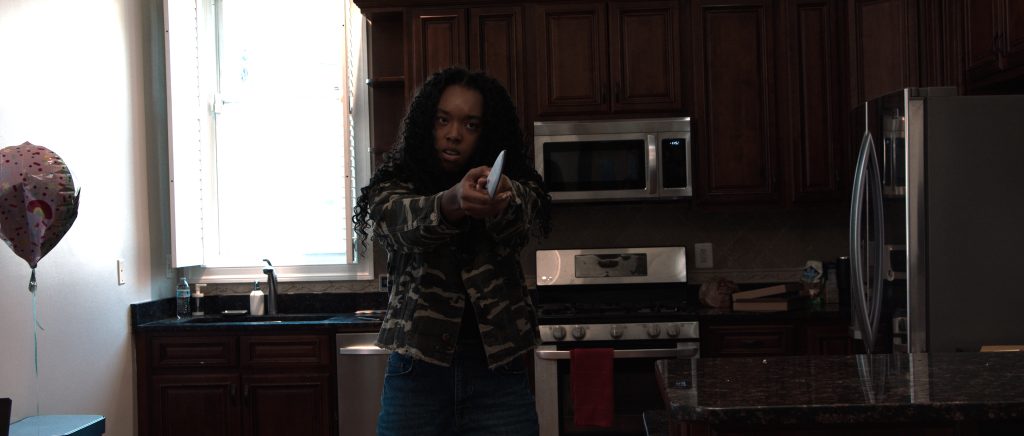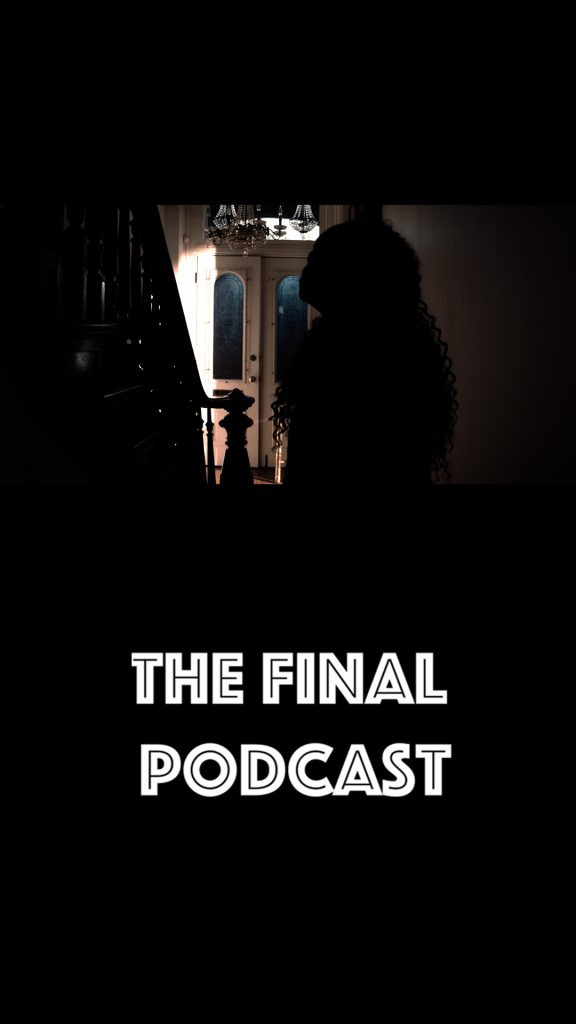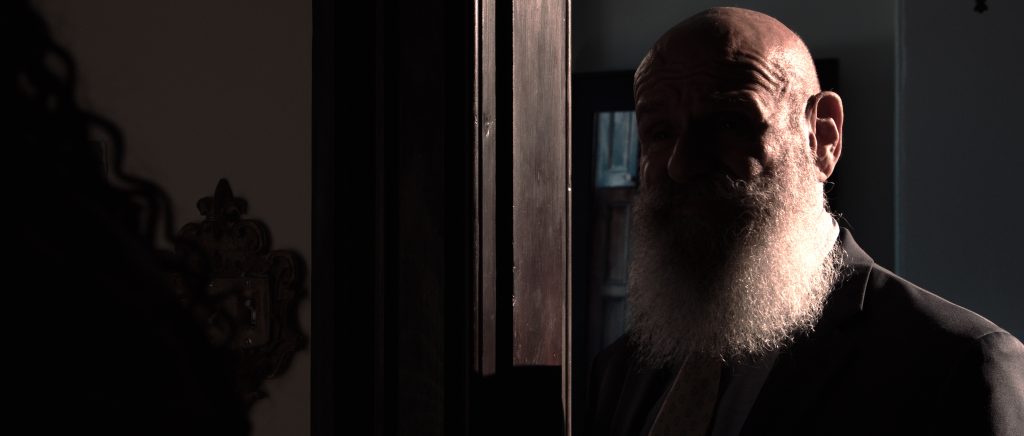A young and successful podcaster is stalked one rainy night in Brian Fenney’s short thriller The Last Podcast. Here are our thoughts.

It’s been a couple of years since Brian Feeney’s Night Terrors crossed our screens, a short but ambitious thriller that showcased a director capable of building tension with limited resources. Now, Feeney returns with an even briefer entry into the short thriller genre: The Last Podcast, a five-minute film that attempts to tell a complete, suspenseful story using just a handful of characters, a single location, and some creative cinematic decisions. While the end result is a mixed bag in terms of execution, The Last Podcast nonetheless demonstrates how far atmosphere and tight editing can go—even in a project of this scale.
The film opens with some surprisingly elegant establishing shots—rain-slicked city streets, children playing on swings, and an overcast skyline that hints at unease. These initial visuals immediately set a tone that suggests something ominous is on the horizon. Soon we’re introduced to Maya (played by Olivia Dantzler), a confident and successful podcaster who operates from the confines of her cozy kitchen setup. Her tools are basic—just a laptop and a couple of microphones—but they get the job done, and her growing popularity suggests she knows how to connect with an audience.

Following an interview with Tony (Tim Caggiano), a guest who speaks about the threats posed by artificial intelligence, Maya receives a package from her housemate Marcus (Patrick Joy). The package, curiously addressed to her by an unnamed “fan,” contains a phone loaded with a disturbing video: footage from earlier that day, secretly filmed inside Maya’s home, capturing her and Tony during their recording session. The tension begins to mount.
As the mystery deepens, Maya encounters a strange woman (Audrey Mollo) who has somehow broken into the house. This unnamed intruder speaks cryptically about following Maya’s career and appears to represent a shadowy group that has been watching her for some time. Her unsettling demeanor quickly turns violent, and the short film culminates in a chase through the house, as Maya tries to escape this knife-wielding assailant. The narrative is simple—perhaps too simple—but it gets its point across effectively within the limited runtime.
Technically speaking, Feeney continues to prove himself adept at using the camera to heighten suspense. Not only did he write and direct the short, but he also served as the editor and cinematographer. That multitasking clearly paid off in terms of visual coherence. The lighting is appropriately moody, the framing is deliberate, and the camera movements are smooth, which adds a polished touch to a very small-scale production. That said, the film’s minimalist setting—largely confined to three rooms—does sometimes feel restrictive, and a bit more spatial variety might have improved the pacing.

The performances are solid but inconsistent. Dantzler carries the film with a credible portrayal of increasing anxiety, and Audrey Mollo manages to instill a real sense of threat despite limited screen time and dialogue. Caggiano and Joy are serviceable in their supporting roles, though neither has much room to leave a lasting impression. The chemistry between characters isn’t as pronounced as it could be, which slightly undercuts the dramatic weight of the conflict.
In terms of sound design, the film is a mixed experience. Dialogue is clear and well-recorded, but the Foley effects—especially the exaggerated footsteps—are distractingly loud and artificial, drawing attention away from the onscreen drama. This is a common pitfall in low-budget films and one that could be easily mitigated with a more balanced audio mix. The score, composed by Mark Rhodes, is understated and effective in tone, but it rarely varies in intensity. A more dynamic approach—perhaps using silence or selective musical cues—could have added greater emotional impact.
Overall, The Last Podcast is a commendable effort that fits squarely in the category of “promising but flawed.” Its brevity is both a strength and a weakness—it never overstays its welcome, but it also lacks the space to fully explore its themes or characters. Still, as a proof of concept or calling card for Feeney’s abilities, it succeeds. With only a skeleton crew—reportedly just Feeney and a boom operator on set—it’s genuinely impressive what was accomplished. While the short won’t reinvent the genre, it’s a neat showcase of what’s possible with ambition, a camera, and a good eye for suspense.
Is there potential for this to evolve into a longer format, perhaps a feature-length thriller or series pilot? That remains to be seen. But whether or not that happens, The Last Podcast makes a strong case for keeping an eye on Brian Feeney’s work going forward.
